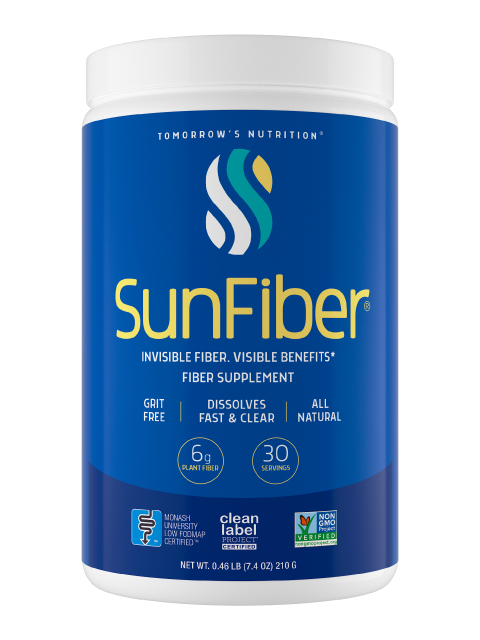Did you know that the majority of dietary fibers limit your body’s ability to absorb essential minerals such as magnesium, iron and calcium, as well as certain drugs and medications? This isn’t a concern with Sunfiber, which actually promotes the absorption of iron and minerals, helping to ensure that you receive the maximum benefits from the digestible foods in your diet.
Some prescription medications may also be robbing your body of these nutritionally powerful minerals. Here is why you need these three nutrients, and more tips (in addition to choosing Sunfiber) for maximizing your intake and absorption.
Iron and Fiber
We need iron to form hemoglobin to transport oxygen throughout our bodies and remove carbon dioxide. Some blood pressure medications and chronic diseases may influence iron absorption and status. If you’re concerned about getting enough iron, it’s important to know the difference between the two different types of dietary irons: heme and non-heme iron.
Non-heme iron, found in beans, cereals and some vegetables, is the more poorly absorbed of the two. Some foods – including eggs, milk and coffee – may further decrease the amount of non-heme iron your body is able to absorb from foods. The richest dietary iron source is lean red meat, which contains heme iron, which is well absorbed by the body. Fish, turkey and chicken also contain heme iron, but in lesser amounts.
Does fiber interfere with iron absorption?
Some fiber-rich foods may reduce iron absorption. Sunfiber helps promote iron absorption.
Calcium and Fiber
Our bodies need calcium for healthy bones and teeth, as well as muscles, nerves and blood-clotting systems. Some blood pressure medications, antibiotics and bisphosphonates may interfere with calcium absorption. To get enough calcium, make sure you’re also getting sufficient vitamin D. We need vitamin D to optimally absorb calcium. You can get vitamin D from egg yolks, some fortified foods and sun exposure.
Does fiber interfere with calcium absorption?
There is some scientific literature suggesting dietary fiber may also interfere with calcium absorption. Prebiotic fibers, such as Sunfiber, are associated with supporting calcium absorption because fermentation in the colon decreases the pH, which helps calcium be better absorbed.
Magnesium and Fiber
This mineral is used by our bodies for healthy bones, nerves and muscles. It assists with hundreds of biochemical processes in the body. It also helps neutralize stomach acid and supports digestive health. Some blood pressure medications, water pills, antibiotics and bisphosphonates may interfere with our ability to absorb magnesium from our food. You can boost your magnesium intake by eating more green leafy vegetables, beans, nuts and whole grains.
A varied, nutritious diet is essential for good health. It’s also important to know when you might need an extra nutrient boost, and how to do so easily and effectively.
Does fiber interfere with magnesium absorption?
Some dietary fibers can limit the absorption of micronutrients such as magnesium into the body. Sunfiber does not inhibit the absorption of macronutrients and may help increase the absorption of minerals.
If you’re concerned your dietary fiber supplement may be limiting nutrient absorption, consider a switch to Sunfiber.*




When is the best time to take sun fibre. I have severe osteoporosis so need to ensure I take it at the appropriate time. You say it does not interfere with nutrient absorption but is there an ideal time to take it?